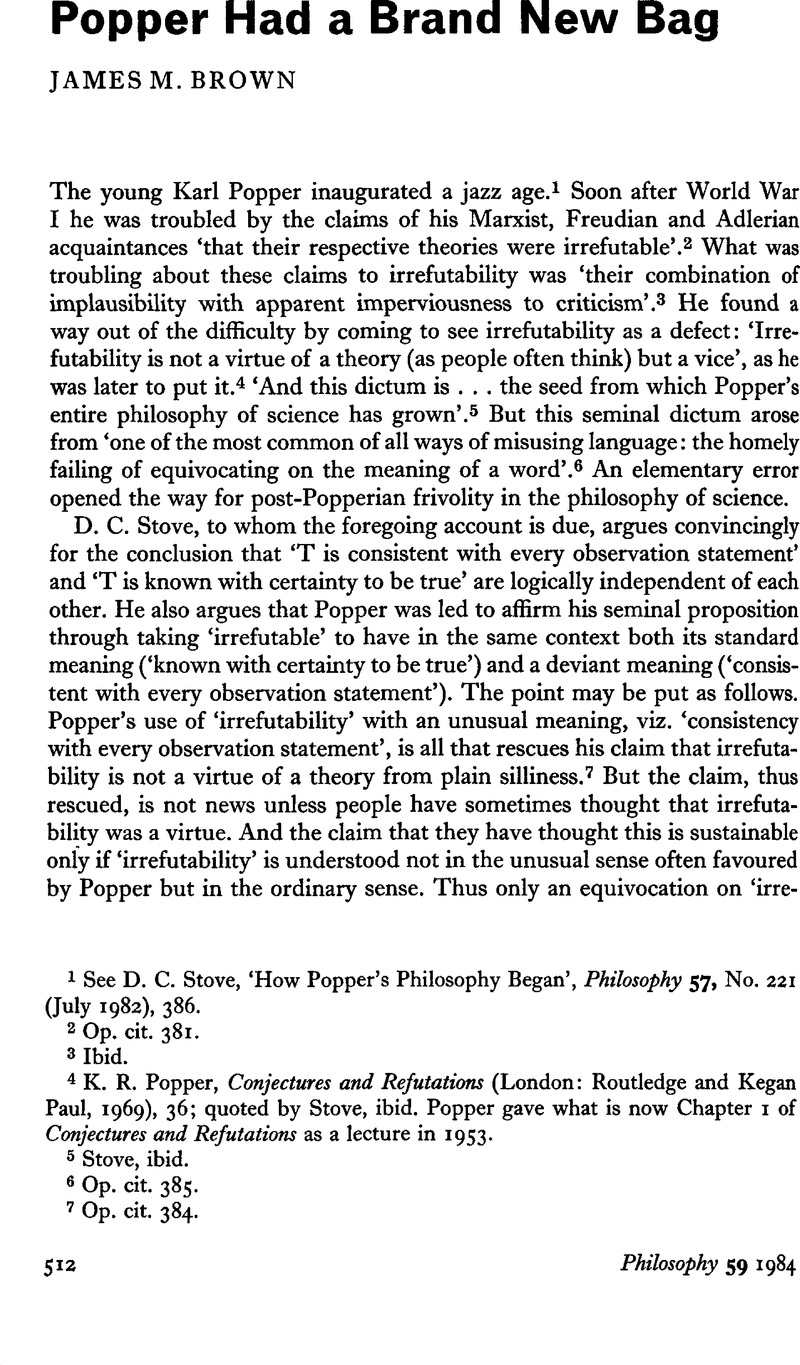No CrossRef data available.
Published online by Cambridge University Press: 30 January 2009

1 See Stove, D. C., ‘How Popper's Philosophy Began’, Philosophy 57, No. 221 (July 1982), 386.Google Scholar
2 Op. cit. 381.
3 Ibid.
4 Popper, K. R., Conjectures and Refutations (London: Routledge and Kegan Paul, 1969), 36; quoted by Stove, ibid. Popper gave what is now Chapter I of Conjectures and Refutations as a lecture in 1953.Google Scholar
5 Stove, ibid.
6 Op. cit. 385.
7 Op. cit. 384.
8 Op. cit. 381.
9 The Concise Oxford Dictionary (Oxford University Press, 1975Google Scholar) says that ‘irrefutable’ means ‘not to be refuted’ and that ‘equivocate’ means ‘use ambiguous words to conceal the truth’ or ‘prevaricate’. The suggestion that Popper takes ‘irrefutable’ to mean simply ‘consistent with every observation statement’ would be hard to sustain; cf. Popper, K. R., The Logic of Scientific Discovery (London: Hutchinson,1968), sections 9, 20 and 21.Google Scholar
10 Conjectures and Refutations, 35.
11 Ibid.
12 Op. cit. 37.